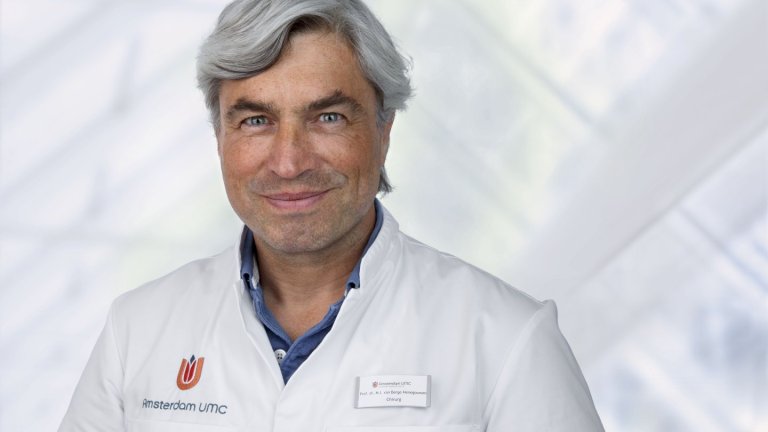Of over 250 cancer types, 220 are considered rare. University medical centers in the Netherlands traditionally conduct research and optimize treatments for a variety of rare cancers, and share knowledge and expertise with other healthcare providers. However, to keep care accessible, affordable and also of high quality, it has become necessary to concentrate expert oncological care, as highlighted in the Integral Care Agreement.
Due to earlier discovery, better treatment options and the aging of Dutch society, the number of cancer patients will grow in the coming years. Also, medical innovations are currently developing at lightning speed and cancer treatments are becoming increasingly complex. The right approach to concentrating oncological care is critical to improving the quality of care for patients. The ICA is founded on regional cooperation among healthcare providers to provide care close to home whenever possible, and expert care at a specialized center only when necessary.
More operations = improved care
Mark van Berge Henegouwen is Professor of Gastrointestinal Surgery, in particular esophageal and gastric surgery, at Amsterdam UMC. Esophageal and gastric cancers are examples of rare cancers that involve highly complex care and carefully planned ‘care pathways’ to achieve the best outcomes for patients. He and his department have recently experienced concentration of care firsthand.
"After the merger of VUmc and AMC into Amsterdam UMC in 2018, two separate departments were centralized in one location and the number of operations we performed increased considerably. We were able to see how the care of rare cancers improves once doctors and nurses are dealing with these types of cancer more frequently."
When a hospital performs more surgeries, surgeons can learn the surgical technique better and faster. This also allows for the development of new techniques and scientific research. "On average, it takes more than 100 operations before a new technique is perfected. If the standard at a hospital is 20 operations per year, it takes a long time for that hospital or surgeon to master the technique," Prof. Van Berge Henegouwen said. “That is why concentration of specialized care makes sense; it offers not only expert care, but more opportunities for innovation, and ultimately better outcomes for the patient.”
Super-specialists
But once a hospital performs the same surgery more frequently, it yields more than just more experienced surgeons. Prof. Van Berge Henegouwen: "After the merger, there was room at Amsterdam UMC, for example, to allocate the 'major abdominal surgery’. Now our surgeons could specialize further – even become ‘super-specialists’. Previously, there was always a surgeon on call for trauma, vascular, and gastroenterological surgery. Now, we have specialists on standby in esophageal, hepato-pancreato-biliary, or colorectal surgery, and from that pool of expertise we can solve nearly all problems. This is quite normal abroad, but in the Netherlands we are the only hospital that is set up this way."
Nurses, nurse practitioners, and other support staff including nutrition assistants also get a trained eye they see more patients with the same disease. As a result, they recognize and treat problems earlier, reducing the number of patients who might otherwise develop serious complications.
New innovations
Concentration of care and economies of scale also result in better cooperation with other departments. Prof. Van Berge Henegouwen points to the treatment of seam leaks as an example. In operations on the esophagus and stomach, seam leakage is the most feared complication, when a new connection does not close properly and stomach contents leak into the chest cavity. Working together with the gastrointestinal and liver departments, Prof. Van Berge Henegouwen developed a new treatment for this complication that allows patients to resume drinking fairly quickly and, in some cases, patients can even be treated on an outpatient basis.

Prof. Mark van Berge Henegouwen.
Regional collaboration
Prof. Van Berge Henegouwen: "With few operations, you can also deliver quality, but generally speaking, the greater the volume, the better the outcomes. I hope that because of the healthcare agreement this will now be faster. To make that happen, it's critical to work together with other care providers in the region. For example, some pre- or post-treatment processes can take place in a hospital closer to a patent’s home. We also find collaboration with patient associations a real necessity. For years, they have been pleading for more concentration of expert care to further improve the quality of care a patient receives."
Visit from parlement member Liane den Haan
MP Liane den Haan visited Amsterdam UMC, location VUmc recently. She was given a presentation on the concentration and distribution of cancer care, followed by a tour of Amsterdam UMC Cancer Center Amsterdam including a demonstration of early detection of cancer using biomarkers. The visit concluded with a look at the Imaging Center, where she learned more about the role of imaging in diagnosis and treatment of cancer.
For more information, contact Cancer Center Amsterdam.
This article was adapted from: Betere uitkomsten bij concentratie van kankerzorg.

